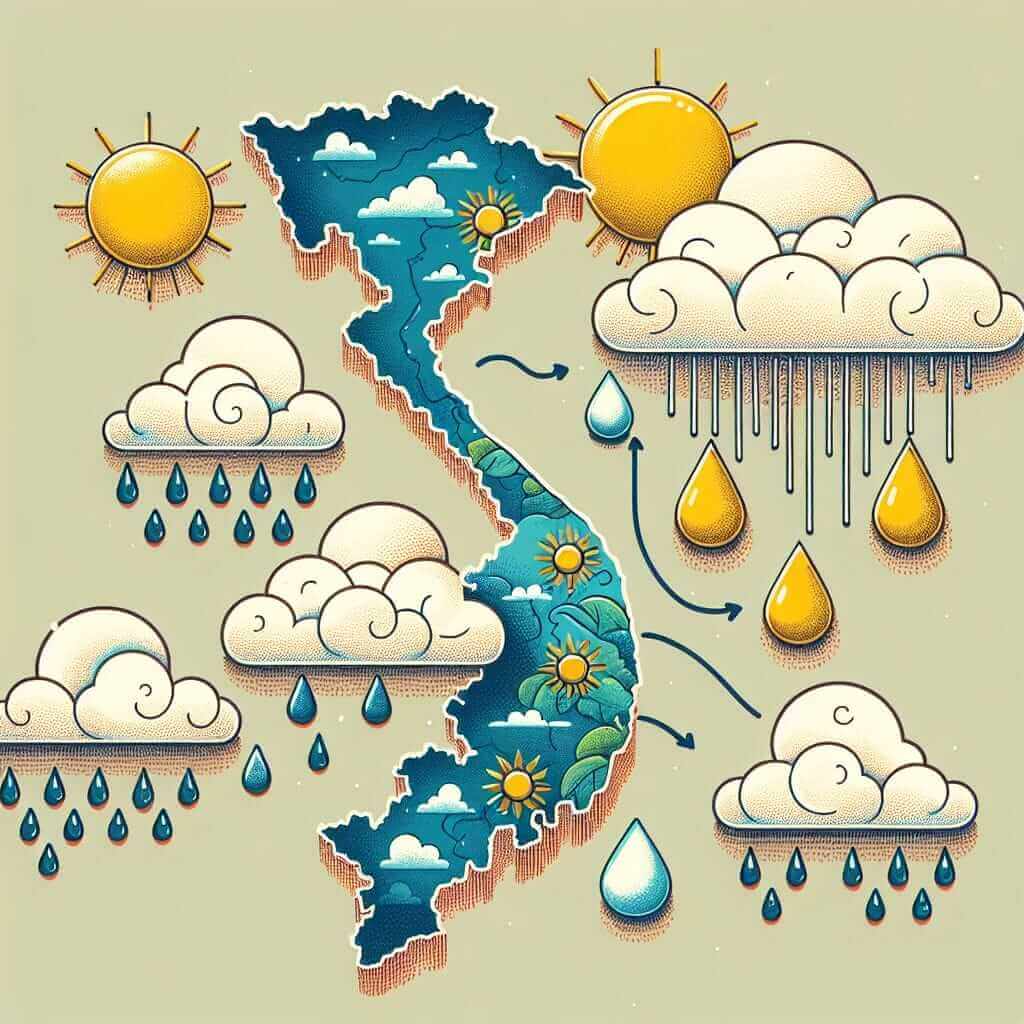As an IELTS instructor with over 20 years of experience, I often encounter students who underestimate the importance of vocabulary, especially when it comes to a seemingly simple topic like the weather. However, in the IELTS Speaking test, particularly Part 1, you might be asked, “What is the weather like in Vietnam?” or “How is the weather in your country?”. This is an excellent opportunity to showcase not only your vocabulary range but also your ability to speak about familiar topics accurately and fluently.
Why is weather vocabulary important for IELTS?
While discussing the weather might seem trivial, it allows examiners to assess your ability to:
- Use a range of descriptive adjectives: Instead of just “hot” or “cold”, can you use words like “humid,” “scorching,” “pleasant,” or “changeable?”
- Employ different grammatical structures: For example, can you use present simple to describe general climate and present continuous to talk about the current weather?
- Demonstrate topic fluency: Can you talk about the weather comfortably and confidently for an extended period?
Talking about the Weather in Vietnam for IELTS
Vietnam, with its diverse geography, experiences a wide range of weather patterns. Here’s how you can describe it effectively:

1. General Climate:
- North: “Northern Vietnam has four distinct seasons. Summers are hot and humid, with frequent downpours. Winters, on the other hand, are relatively mild and dry.”
- Central: “Central Vietnam is known for its tropical monsoon climate, characterized by a distinct rainy season and a dry season.”
- South: “Southern Vietnam enjoys a tropical climate with consistently high temperatures and humidity year-round. It has two main seasons: the wet season and the dry season.”
2. Current Weather:
- Present Continuous: “The sun is shining brightly today in Ho Chi Minh City, and it’s quite humid.”
- Using adverbs: “It’s been raining heavily in Hanoi lately.”
- Idioms: “The weather in Da Nang is so unpredictable, it’s like a lucky dip!”
Example IELTS Speaking Question & Answer:
Examiner: What’s the weather like in your country?
Candidate: “Well, I’m from Vietnam, and the weather varies significantly depending on the region. In the south, where I live, it’s generally hot and humid throughout the year. We’re currently in the rainy season, so there are frequent downpours in the afternoon. However, the sun usually comes out again quickly, making it quite muggy.”
Tips for Success:
- Expand your vocabulary: Use a good English dictionary or online resources to learn a variety of words and phrases related to weather conditions.
- Practice makes perfect: Engage in regular speaking practice with a partner or an IELTS tutor to improve your fluency and accuracy.
- Think about regional variations: Be prepared to discuss the weather in different parts of your country.
- Go beyond basic descriptions: Use adverbs, idioms, and comparisons to make your language more interesting and impressive.
By mastering weather vocabulary and practicing your speaking skills, you can confidently handle any weather-related questions in the IELTS Speaking test and boost your overall score.